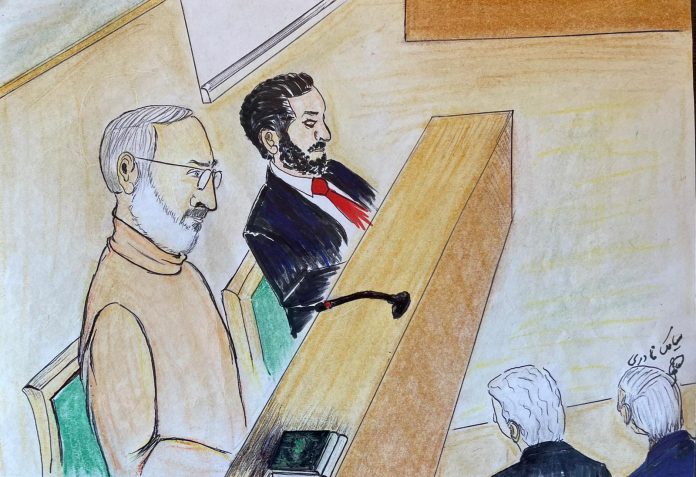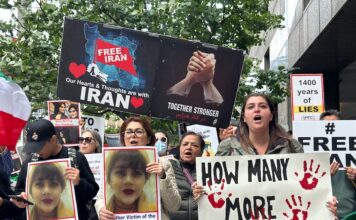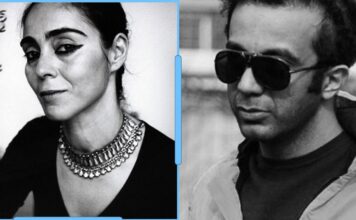
By Simon Johnson and Johan Ahlander
STOCKHOLM, July 14 (Reuters) – A Swedish court sentenced a former Iranian official to life in prison on Thursday for his part in the mass execution and torture of political prisoners in the 1980s.
Hamid Noury, 61, who was arrested at a Stockholm airport in 2019, was charged with war crimes for the mass execution and torture of political prisoners at the Gohardasht prison in Karaj, Iran, in 1988. Read full story
Handing down its conviction and sentence, the Stockholm District Court said Noury, who it said was an assistant to the deputy prosecutor at the prison, had been “jointly and in collusion with others been involved in the executions”, which it described as a “serious crime against international law”.
Iran condemned the verdict. “Iran is absolutely certain that Noury’s sentence was politically motivated and it has no legal validity,” Iran’s Foreign Ministry spokesperson Nasser Kanaani said in a statement.
Iranian foreign ministry summoned the Swedish charge d’affaires in Tehran to protest the verdict. Read full story
Noury has denied the charges.
“We are obviously disappointed that our client has been convicted. We will now analyse and review the details found in the court’s judgement together with our client,” said Noury’s lawyer Daniel Marcus in an e-mail. “We will appeal.”
[aesop_image img=”https://kayhanlife.com/wp-content/uploads/2021/07/khameneh-nouri-raeisi.jpg” panorama=”off” credit=”From left to right: Khamenei, Nouri and Raisi. Kayhan London./ ” align=”center” lightbox=”on” captionsrc=”custom” captionposition=”left” revealfx=”off” overlay_revealfx=”off”]
Amnesty International has put the number executed on government orders at around 5,000, saying in a 2018 report that “the real number could be higher”. Iran has never acknowledged the killings.
Noury is the only person so far to face trial over the purge that targeted members of the Iranian People’s Mujahideen, which was fighting in parts of Iran, as well as other political dissidents.
Iran Strives to Free Diplomats Convicted of ‘Terrorism’ in Europe
ANALYSIS: What Role Did Iran’s New President Play in the 1988 Executions?
LOOKING FOR ‘TRUTH AND JUSTICE’
Under Swedish law, courts can try Swedish citizens and other nationals for crimes against international law committed abroad.
Hundreds of exiled Iranians who had gathered at the court greeted the verdict with jubilant cheers.
Reza Fallahi, 65, one of the plaintiffs in the case, said he hoped that while in prison, Noury would provide information about the killings.
“We are looking just for truth and for justice,” Fallahi, who spent 10 years in jail in Iran for supporting the opposition, said.
The National Council of Resistance of Iran, an opposition umbrella group, said in a statement “justice will be served” when the highest officials were brought before the courts.
Rights groups say hardline President Ebrahim Raisi was one of four judges who oversaw the executions. Read full story
When asked about allegations, Raisi told reporters in 2021 that “if a judge, a prosecutor has defended the security of the people, he should be praised”.
Some Iranian clerics have said the trials of the prisoners were fair.
The case has soured relations between the two countries, with Iran calling the trial illegal.
Shortly before the trial ended in May, Iranian media reported Swedish-Iranian researcher Ahmadreza Djalali, sentenced to death on charges of spying for Israel, would be executed. Sweden also said on May 6 that a Swedish tourist had been detained in Iran.
(Reporting by Simon Johnson, Johan Ahlander and Anna Ringstrom in Stockholm, Stine Jacobsen in Copenhagen; Editing by Alison Williams, Tomasz Janowski and Frances Kerry)







